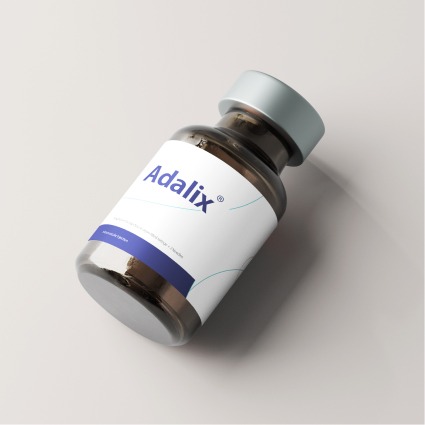Biosimilars in Healthcare Economics: Enhancing Global Access to Medicine
Date: July 2025
Healthcare systems globally are facing unprecedented economic pressure due to the soaring costs of biologic therapies. Biologic medicines have significantly improved patient outcomes across various chronic and severe conditions, yet their high costs pose substantial barriers, limiting equitable healthcare access worldwide. The economic sustainability of healthcare systems is increasingly dependent on finding viable alternatives that can deliver similar outcomes at significantly reduced costs. This scenario positions biosimilars—biological products highly identical to an existing approved reference biologic—as pivotal solutions.
Economic Implications: GCC and Global Healthcare Dynamics
In recent years, the Gulf Cooperation Council (GCC) region has experienced remarkable economic and demographic transformations. With rising chronic disease prevalence and increasing healthcare demands, biologic medications represent a significant and escalating portion of healthcare expenditures. Financial pressures in the region are mirrored globally, as healthcare providers seek to manage limited resources while meeting rising demands.
Biologic drugs, although effective, are costly and have placed tremendous pressure on budgets. For instance, therapies like Adalimumab, which are essential in treating autoimmune conditions, have substantially driven up healthcare costs due to their pricing models, often limiting access to wealthier nations or privileged patient populations.
The Role and Potential of Biosimilars
Biosimilars offer promising avenues to alleviate financial burdens without compromising quality. Typically providing cost savings of 40% to 60%, biosimilars have the potential to extend healthcare access significantly. By reducing financial constraints, healthcare systems can reallocate budgets toward preventive care, infrastructure, and other critical healthcare services, thereby promoting overall sustainability.
Top Trends Shaping the Global Biosimilars Market
Several transformative trends currently influence the global biosimilars landscape:
Market Growth and Expansion
The global biosimilars market is projected to exceed USD 50 billion by 2030. Driving factors include intensified global healthcare demands, budget constraints, and increasing recognition of biosimilar efficacy. The rapid growth suggests a shifting healthcare landscape, emphasizing cost efficiency alongside therapeutic effectiveness.
Streamlined Regulatory Frameworks
Global regulatory agencies, such as the FDA and EMA, as well as regional authorities within GCC countries, are increasingly aligning and simplifying approval processes. These streamlined regulatory pathways are crucial, facilitating quicker market entry and adoption of biosimilars, thus expanding patient access to cost-effective biologic treatments.
Technological Advancements and Enhanced Manufacturing
Recent advances in biotechnology have substantially increased the efficiency, reliability, and scalability of biosimilar production. Enhanced manufacturing technologies ensure high-quality standards and greater production consistency, thereby reinforcing confidence among clinicians, policymakers, and patients in the reliability of biosimilars.
Clinical Acceptance and Education Initiatives
Clinical studies consistently affirm that biosimilars offer comparable efficacy and safety profiles to reference biologics. Increased educational initiatives and campaigns targeting healthcare professionals and patients are pivotal, addressing misconceptions and promoting broader acceptance and use of biosimilars.
Strategic Global Partnerships
Growing collaborations between governmental bodies, healthcare institutions, and private-sector entities significantly impact biosimilar market penetration. These strategic partnerships help address barriers related to regulation, distribution, and market entry, collectively facilitating widespread adoption of biosimilars globally.
Persistent Barriers to Biosimilar Adoption
Despite clear advantages, several challenges still impede biosimilar adoption worldwide:
Regulatory Hurdles
Regulatory discrepancies across different regions complicate the approval of biosimilars, limiting timely global access.
Intellectual Property and Monopolistic Practices
Patent disputes, market exclusivities, and aggressive tactics by originator companies often hinder the timely entry of biosimilars into the market.
Awareness and Confidence Gaps
Misconceptions and limited awareness among patients and healthcare professionals remain significant obstacles, restricting adoption despite strong clinical evidence supporting biosimilar equivalency.
Strategic Approaches to Overcome Adoption Barriers
Addressing these obstacles requires collaborative, strategic efforts:
Regulatory Harmonization
Strengthened international cooperation and standardized approval pathways are crucial for easing the entry of biosimilars into the market.
Intellectual Property Reform
More straightforward regulatory guidelines and stronger legislative frameworks can mitigate monopolistic practices, fostering competition and market fairness.
Educational Campaigns
Comprehensive education initiatives targeting healthcare providers, policymakers, and patients must emphasize clinical evidence and economic benefits, correcting misinformation and promoting trust in biosimilars.
Conclusion: Charting a Sustainable Healthcare Future
The adoption and integration of biosimilars represent a significant opportunity for sustainable, equitable global healthcare. Successfully navigating current barriers requires collaborative engagement among policymakers, regulatory bodies, healthcare providers, and industry stakeholders. Strategic investments in regulatory reform, education, technological advancements, and cross-sector collaboration will play decisive roles.
Ultimately, the proactive pursuit of these strategies will determine the ability of healthcare systems worldwide to effectively utilize biosimilars, offering substantial economic relief and expanding equitable access to essential biologic therapies.
Explore case notes, Q&As, and news in the OBP.

